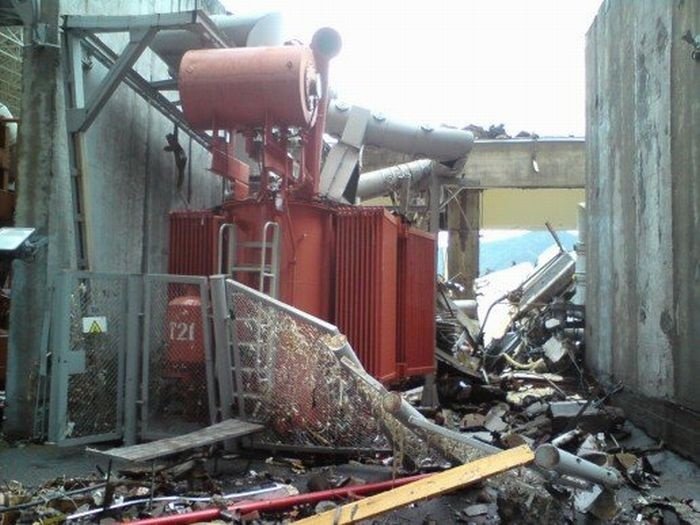|
|
Hydroelectric Power Station Disaster, Russia
|
The rated capacity of a power station is nearly the maximum electrical power that that power station can produce. Some power plants are run at almost exactly their rated capacity all the time, as a non-load-following base load power plant, except at times of scheduled or unscheduled maintenance.
However, many power plants usually produce much less power than their rated capacity.
In some cases a power plant produces much less power than its rated capacity because it uses an intermittent energy source. Operators try to pull maximum available power from such power plants, because their marginal cost is practically zero, but the available power varies widely—in particular, it may be zero during heavy storms at night.
In some cases operators deliberately produce less power for economic reasons. The cost of fuel to run a load following power plant may be relatively high, and the cost of fuel to run a peaking power plant is even higher—they have relatively high marginal costs. Operators keep them turned off ("operational reserve") or running at minimum fuel consumption ("spinning reserve") most of the time. Operators feed more fuel into load following power plants only when the demand rises above what lower-cost plants (i.e., intermittent and base load plants) can produce, and then feed more fuel into peaking power plants only when the demand rises faster than the load following power plants can follow.
|
|









